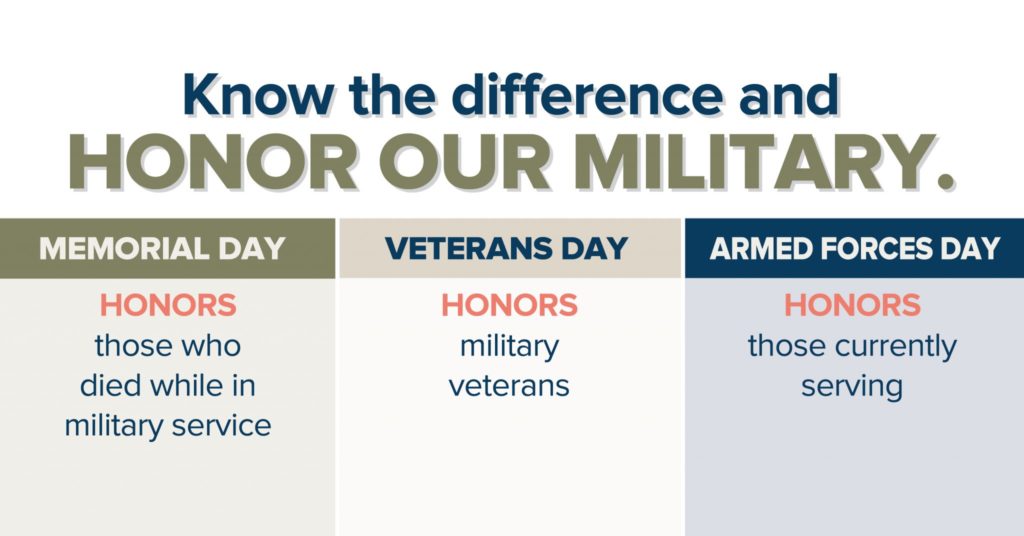We’ve all heard it mentioned every now and then at military ceremonies or gatherings among friends who live the military life. OPSEC—or Operations Security—seems like common sense to most of us. And after all, who is likely to overhear you talking to your Aunt Jamie about your spouse’s deployment dates while chatting about Christmas plans? You’re at home, and that means you’re safe, right? Here are a few things you can do to better ensure that you’re protecting OPSEC…and PERSEC (that’s personal security), too.
Acknowledge the reasons OPSEC matters to you.
We exist in a time of great international tension. As a military family, you are probably already all too aware that that this makes you a potential target.
Take a very personal 30-second inventory of all the things that could make you a would-be target: Perhaps you or your spouse are a high-ranking member of the military; you have an ID that grants you access to a highly populated military base; and you have a family and children whom you love and would do anything to protect. You already know all the reasons that you need to get smart on OPSEC at home and why you need your children and even your extended family (and maybe your neighbor) to be knowledgeable, too.
Take a moment to remember simple ways to protect yourself. Each branch of the military has OPSEC training and information available for members online. Ask your service member for more information or start here: facebook.com/usarmyopse/. The US Army maintains a helpful Facebook page with current OPSEC tips and alerts to raise awareness for military members and families.
Get to know your neighbors. (Just don’t overshare.)
It’s fun to talk about what you and your spouses do for a living and the exciting place you just moved from or are moving to. Just bear in mind, not every person you meet has the same OPSEC discipline you do.
Always err on the side of caution and expect anything you share aloud about your military member’s upcoming travel schedule, rank, and specialty may get cheerfully passed on to everyone in town your neighbor knows.
There’s also a lot a casual passerby can determine about us as homeowners—from the military flag on our front porch, to an out-of-state license plate, or a family of stick figures on our car’s back window.
Tell your neighbors only what you’d be comfortable with their landscaper, handyman, Facebook prayer group, and daughter three states away knowing—as long as it doesn’t jeopardize any military members’ security or operations details.
Be smart about social media.
Don’t accept friend requests from total strangers. Just don’t. If you haven’t checked your social media privacy settings in a while—stop reading this and go update them now. The majority of what’s shared on social media could be read by the general public. If your profile loudly and proudly proclaims your status and description as a military member or spouse, consider who may be looking for that information and your location. Also be reasonable about what you share on local or community Facebook pages or groups.
Never post an image your service member sent you during a deployment (it could contain metadata exposing critical location details) or any dates or locations related to service members deploying or returning home.
As a matter of personal security, don’t mention on social media when you are home alone (for example, your spouse is deployed) or when your house is vacant for a period of time. This also goes for soliciting recommendations on social media for house-sitting or dog-walking services.
Anything you text, email, say, photograph, or write down can end up on social media. All it takes is a well-meaning relative who isn’t too familiar with OPSEC to “pass on” information that could put your military member at risk.
Know your safest communication resources.
For questions about your service member’s status when you aren’t able to communicate, or safe updates from their command (so you don’t have to ask around to other spouses or online groups), rely on the primary contact designated to support you during deployments.
Seek out your Family Readiness Support Advisor (FRSA) if in the Army, Ombudsman if in the Navy or Coast Guard, or your Family Readiness Officer (FRO) if in the Marine Corps. If there is ever a family emergency and you need to notify your service member, these individuals should be your first contact for getting this information to your spouse.
The American Red Cross Hero Center (1-877-272-7337 to speak to a Red Cross Emergency Communications Specialist) is also available 24/7 to assist with reaching your service member’s command in the event of an emergency.
As a real estate professional, I am personally committed to your safety.
Whether working with military clients who are searching for a home or listing a property for sale or rent, a good real estate agent will always ensure your family’s personal information is kept private and secure. For example, it’s a good idea to review how to prepare your house for photographs and showings and to discuss whether any information about your move should be shared with potential buyers. As always, trust your instincts and advocate for the safety of your family when needed. Safety at home starts with awareness, and you are the best person to put OPSEC into practice in your home and family every day.
According to the Department of Defense Education Activity website, “Operations Security, or OPSEC, is the process by which we protect unclassified information that can be used against us. OPSEC challenges us to look at ourselves through the eyes of an adversary (individuals, groups, countries, organizations). Essentially, anyone who can harm people, resources, or mission is an adversary. The bottom line is that we can be our own worst enemy.” https://www.dodea.edu/Offices/Security/index.cfm



